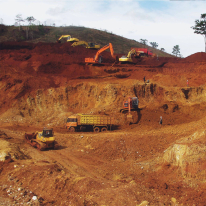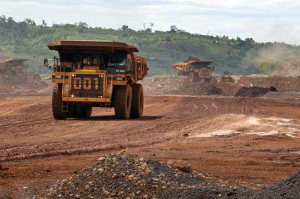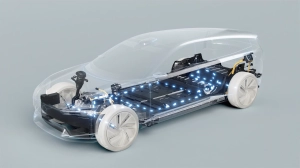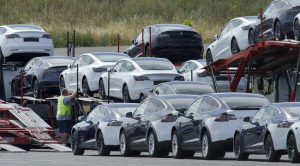Antam, IBC to develop battery for electric vehicles industry
State-owned mining company PT Aneka Tambang Tbk (Antam) is developing a plant and smelter to process Mix Sulphide Precipitate (MSP) as a raw material to produce precursors or cathodes for electric vehicle batteries.
Antam President Director Nico Kanter said his company and state-owned PT Indonesia Battery Corporation (IBC) signed two framework agreements. These agreements served as the basis for building a smelter, cathode/precursor manufacturing facility, and recycling facilities for batteries.
"We will build the recycling facility in Indonesia as well," he said during a hearing with the House of Representatives' Commission VI overseeing industry and investment on September 13, 2022.
IBC had said earlier that the development of upstream and downstream industries - including mining, smelting, precursors and materials for cathode battery cells, battery recycling, and two-wheeler and four-wheeler vehicles - would cost the consortium of companies approximately US$ 15 billion.
Read also: IBC develops Electric Vehicle ecosystem
Kanter said Antam's first framework agreement was with Chinese company PT Ningbo Contemporary Brunp Lygend Co., Ltd. (CBL). He said the consortium must include not only experts in building factories but also in building precursor and battery projects. "This is the world's largest producer of electric vehicles," he said.
The second framework agreement was with LG Energy Solutions (LGES) of South Korea. The consortium includes LG Solution, Hoayou, Posco and Hyundai. "It is a consortium of companies with expertise in their respective fields," Kanter said.
Antam to serve as majority stakeholder
As a natural resource owner, Antam will own the majority stake in its joint venture with CBL and LGES. CBL or LGES will hold at least 49% of the shares, while Antam will have at least 51%. "It is for the upstream industry," said Kanter.
Capital will be monetized from Antam's nickel resources for its upstream nickel projects. A public auditor and a technical consultant will calculate Antam's nickel resources, which can be converted into 49% of shares for investment in smelters.
As for the downstream industry for Rotary Kiln Electric Furnace (RKEF) smelter and High-Pressure Acid Leaching (HPAL), Antam and IBC will have 40% of the shares. Meanwhile, CBL and LGES will have 60% of the claims.
"As a result, they will build the derivative products that will be processed into cathodes and precursors," Kanter said. He added that two facilities will be established in East Halmahera, North Maluku. However, the derivative industry will be located in Batang, Central Java.
As a result of the framework agreements, Antam shareholders have agreed in the shareholders meeting on August 23, 2022, that the company would spin off two subsidiaries. The two subsidiaries will form joint ventures with CBL and LGES, as well as IBC, to develop nickel's upstream and downstream industries and electric vehicles.
"Antam has established subsidiaries where IBC, CBL and LGES have shares. These subsidiaries will run Antam's battery projects. In this case, we are dealing with the first industry. To establish a legacy in Indonesia in electric vehicles, we seek supports from House members. We will enter the battery industry and not only the stainless steel industry," Kanter explained.
Abundant raw materials
Nickel is the primary raw material used in electric battery manufacturing. There are vast reserves of nickel in Indonesia. Antam has enough nickel reserves in North Maluku province to supply the company’s demands. On the other hand, other minerals like lithium and graphite will be imported.
The company will require 770 tons of nickel metal for 1 GWh (gigaWatts hour) of battery cells or equal to 20,000 units of electric cars. IBC will establish smelters with its partners in response to these demands.
According to the 2020 government data, Indonesia is estimated to have 985 million metric tons of nickel reserves and 16 million metric tons of nickel metal reserves.
Indonesia was the world’s largest nickel producer in 2019, with 800,000 tons produced that year. There were 19 nickel smelters in Indonesia operating in 2020, with a capacity of 12.4 million tons of nickel per year. In comparison, 15 smelters are under construction with a total capacity of 6.03 million tons per year.
Faisal Basri, an economist at the University of Indonesia (UI), said it was impossible in the world to have such an ecosystem for EV industry. A country must develop an EV industry from upstream to downstream. According to him, it is typical of a country to be involved in a global supply chain.
On the other hand, Indonesia needs to consider its nickel reserves. Based on the United States Geological Survey data, Indonesia only had 21 million metric tons of nickel reserves in January 2021. According to some estimates, Indonesia’s nickel reserves will run out in 10 years if they were overexploited.
Already have an account? Sign In
-
Start reading
Freemium
-
Monthly Subscription
20% OFF$29.75
$37.19/MonthCancel anytime
This offer is open to all new subscribers!
Subscribe now -
Yearly Subscription
33% OFF$228.13
$340.5/YearCancel anytime
This offer is open to all new subscribers!
Subscribe now







